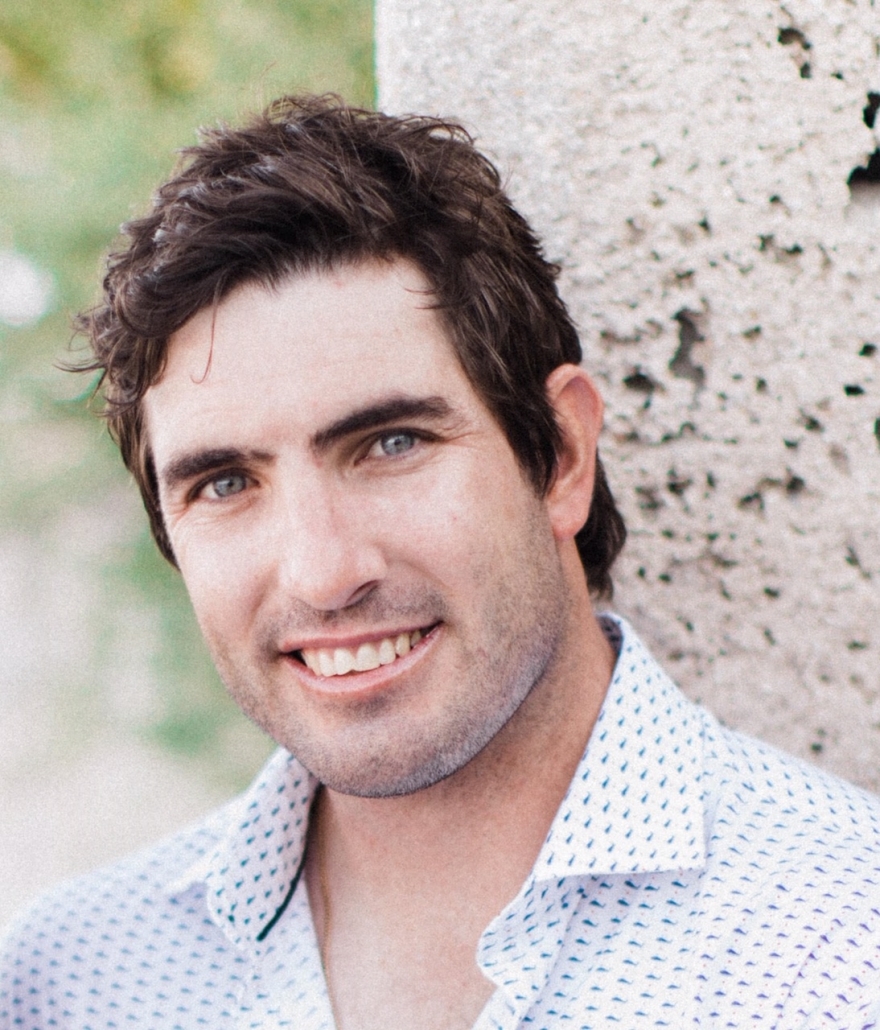
Dan Rogers talks about breaking alcohol addiction.
In this interview, Dan Rogers talks to us about giving up alcohol and the impact it’s had on his emotional and mental wellbeing. He also discusses cutting out sugar from his diet, taking up meditation and managing his anxiety.
Alcohol, sugar & anxiety
| Dan, when did you start drinking alcohol? I started drinking socially when I was a teenager at the odd party, but it wasn’t until I was in my late twenties that I began drinking consistently. Most of the boys I hung out with used to drink beer. I’m an all-or-nothing type of person so my drinking did kind of snowball. I started with only one or two drinks a night but after a few months, I was having between five and six drinks a night. It became a habit. I was even drinking at home on my own too. Why do you think you started drinking so much? To relax, I guess. As time went on, I built up an immunity to it; I needed to drink more to get the same effect. Even after having a couple of beers with the guys outside, I’d come back inside and have another two or three by myself as a nightcap, to help get me off to sleep. Most nights I’d have about five drinks. How did you feel the next morning after drinking? It made me sluggish and listless. I would wake up last minute, not eat breakfast, not have time to make lunch or get myself organised. My diet and routine completely went out of the window, especially if I started drinking straight after work. I ended up living on bought lunches from a shop so I was also spending more money. My drinking became habitual and before I knew it, I was drinking every day in this repeating cycle. The drinking didn’t stop when I came home from a swing either. My wife would go to bed and I’d stay up and have a few extra beers. So, we would go to bed at different times, wake up at different times. I wasn’t helping out around the house or with our daughter because I’d wake up with a hangover. It nearly broke my relationship. How did drinking affect you physically? Alcohol definitely brings on anxiety for me, especially if I’m doing a high-stress job. Not eating properly and relying on coffee and sugar to get me through also added to the anxiety. I struggled to get up early too which meant I didn’t always achieve my goals for the day, exacerbating my anxiety further. I’ve always been an avid gym person but I noticed all the drinking was increasing the size of my gut. I really value being fit and being able to run down the beach or go surfing. So, for me, drinking didn’t align with my values. I was never obese or anything as I’ve got a fast metabolism but I did have a big belly. What prompted you to make some changes? Over the years I’ve checked myself and realised my drinking was getting out of hand, so I quit for a month or two, just to recalibrate and reset the clock. However, the drinking would start again; first with one or two, but it soon crept up for four or five a night. I got to a point though where I realised the drinking wasn’t good for my mental health and I didn’t feel good about myself. I was sitting at the airport one day when I had this epiphany; I told the guys I was with that the beer I was drinking would be my last for a year. And it was. How was it to go cold turkey like that? I find it much easier to go cold turkey because I set a promise for myself. I use that promise as the inspiration to not do it. If I have a beer, I’ve gone back on my own personal promise. Did you have any alcohol withdrawal symptoms? No. I didn’t have the best sleep the first night, but after that, I slept fine. It’s a bit like coffee; the first day I get a headache but on day two, I’m fine. You also gave up sugar. Tell me about that. I’m a sucker for buying a bag of Doritos and a chocolate bar here and there and also having two to four coffees a day with sugar. I found myself on these rollercoasters of highs and lows. Once I ditched sugar, I had so much more energy. I also try to limit my coffee so I drink green tea instead. Do you practice meditation? Yes, I do. I’ve always had an overactive brain so meditation really helps to quiet my mind as it’s too busy. I learnt to meditate at a coaching retreat in Bali and I’ve done it ever since. At first, I found it difficult, but once I understood the process of meditation and quietening my mind down, it became a lot easier. The more you meditate, the easier it gets because your whole vibration and energy level just slows down and you become more grounded. When I’m feeling anxious and I need to recalibrate, the first thing I do is start meditating more. How do you feel now that you have control over your body, without alcohol and sugar? For me, the biggest win from all of this is the realisation is that nothing is external. You can control so much if you just take responsibility for your actions and the way you live. I used to blame other things for the way I was feeling or just cast it off and say “it’s just how I am”. Now I’ve realised that rather than complaining about things, I can take control by making some changes. How is your anxiety now? It’s so much better now I’m not drinking. I used to get a bad back or sore shoulder; it was my anxiety coming out in physical symptoms. If I get stressed and things don’t go to plan for me, the physical anxiety can resurface but as soon as it does, I address it. I now have much more self-awareness. Are you ever tempted to have a beer? There’s probably been the odd day but it passes quickly. I haven’t drunk for six months now and during that time, there’s only been three or four occasions where I’ve thought it would have been nice to have a beer. Going to the bottle shop on the way home from the shops used to be a trigger in the early days, but now I just drive straight past. It’s all about self-control and positive self-talk. I remind myself that I won’t feel good the next day if I have a drink. What advice would you give to someone who is considering giving up alcohol, sugar or coffee? Go for it! Try it for a month and see how it makes you feel. Once you see the difference in how you feel, you’ll want to keep it up. You get so much more clarity and time back in your life. I now have all this extra time to focus on things such as studying or spending time with my family. If I was still drinking, I’d be going for a beer and not studying. I just wouldn’t be able to study as I’d have a hangover the next day. Now, I’m fully in control of where my life is going; my career, my family life and my personal goals. There are no more excuses, I just get on with things. |
How to break an addiction
Here are 3 tips to help break your addiction to alcohol
Tip #1 – Be self-aware
Self-awareness involves recognising that you have a problem. Understanding that alcohol has control of you and you no longer have control of alcohol. Be brave. No more denial.
Tip #2 – Reach out
Reach out and tell someone. Being brave enough to let someone know – your partner, friends or family members. Don’t bottle things up and suffer in silence. With the support of your loved ones, you can have help to attain your goals.
Tip #3 – Plan
Once you have acknowledged your addiction, strategise. Make a plan that suits that you can stick to.
over to you
If you liked this article, please share with friends and family who may have an addiction.


